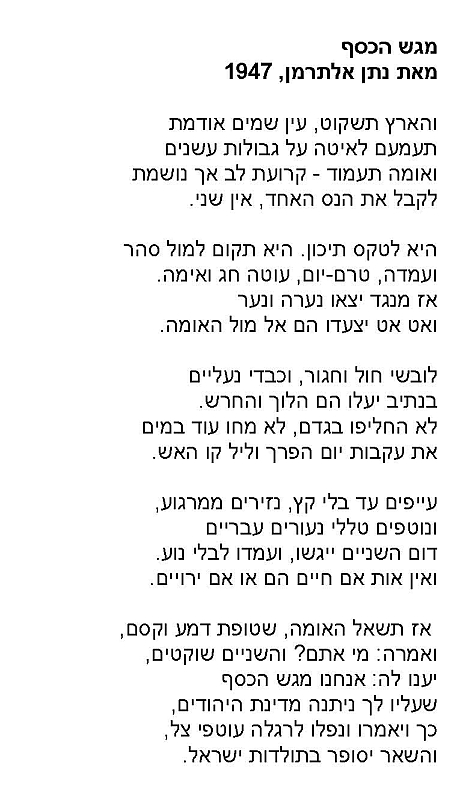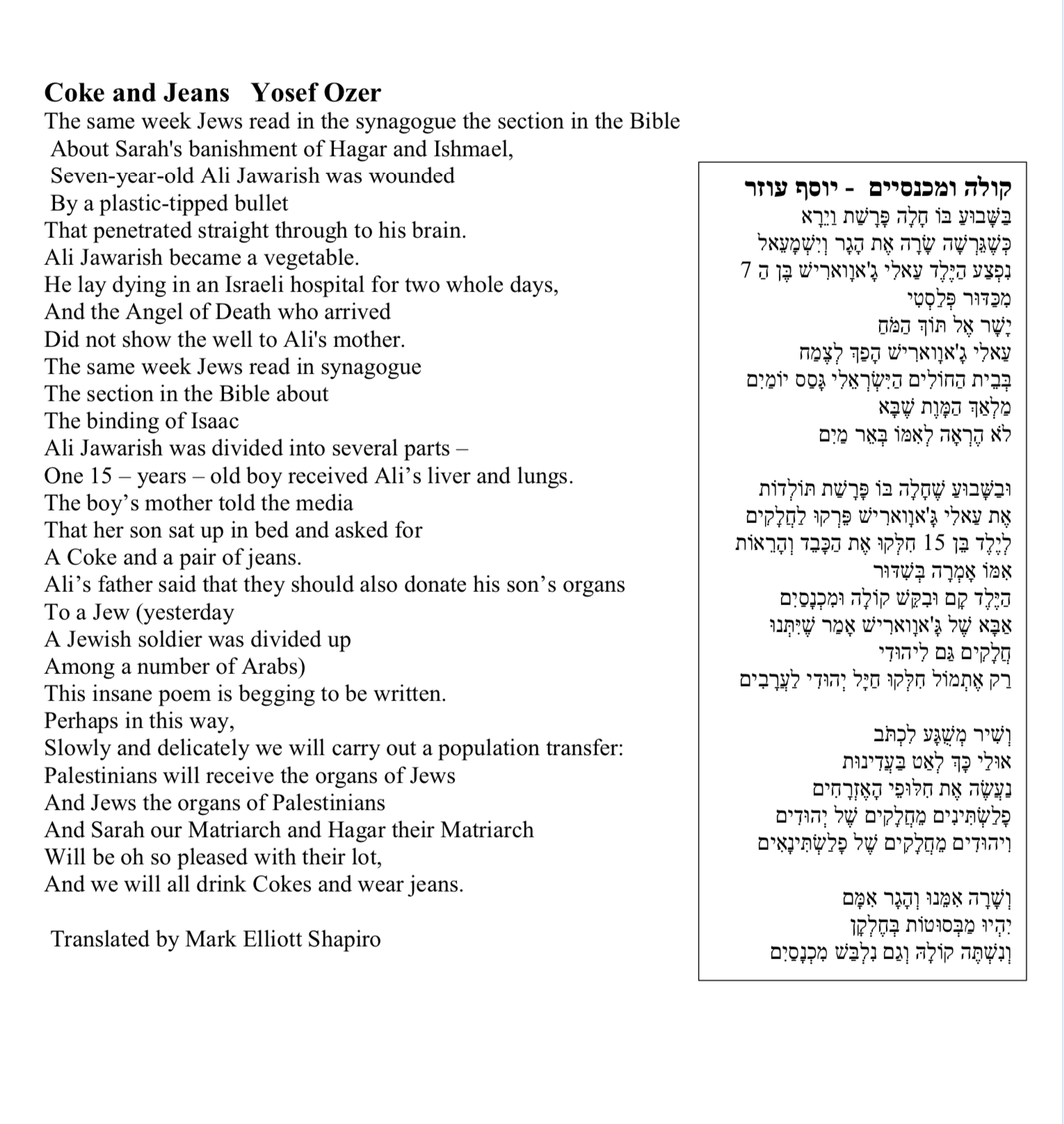

Below are two Hebrew poems along with introductory remarks and context from Rachel Korazim, a renowned educator of Hebrew literature. The first poem “The Silver Platter” is iconic (here’s Hartman scholar Rani Jaeger talking about it in 2008). The second, “Coke and Jeans” is a contemporary offering and may be less familiar to North American readers. Read individually, each tells a different story about Israeli ethos. Read together, they provide a glimpse into the enduring complexities of Israeli society and life.
For an entire educational curriculum, Zot Hashira, devoted to poetry from the seven decades of the State, see Rachel’s website.
Natan Alterman (1910 -1970) was one of the most important poets of the pre-state and early years of the State of Israel. His body of poetry is vast and includes volumes and volumes of lyrical, historical, personal and national poems and prose.
Yet, he is mainly remembered for one poem: “The Silver Platter,” which was published in The Seventh Column – his weekly Friday column in Davar for over 30 years. In this column, Alterman reacted poetically to contemporary events. Reading the collected works of this column is a unique way of learning the history of the State of Israel. Alterman was not paid for The Seventh Column. He had held the position of the night editor for his livelihood.
This poem, which is an iconic text in Israel poetry of remembrance, was published in Davar on December 18, 1947. It is linked, but not in a simple fashion, to the date of November 29, 1947, when the United Nations adopted the Partition Plan as Resolution 181. Three weeks had passed between this decision and the publication. The events of these weeks are crucial not only for the understanding of the poem and the poet’s intention in writing it. They are key to the formative days of the State of Israel and its military forces.
The poem was written at the very beginning of the War of Independence, thus positioning the poet in a prophetic role of he who sees the future and can promise the hard days will end. Note the time of day – sunset – conforming to the biblical concept of the beginning of a new day. The poem is replete with other biblical allusions as well. Note the anonymity of the soldiers, the equality of genders, and the lack of decorum – all characteristic of the early IDF just emerging from the anonymity of the undergrounds. Note the name of the state (“The Jews’ State) as the poem was published in December 1947: The State of Israel was not yet named.

For more on the historical context of the poem, take a look at the following slide show.
Guiding questions:
Yosef Ozer (b. 1952) was born in Jerusalem and grew up in northern Israel. In the aftermath of the Yom Kippur War, Ozer embraced a more religiously-inclined Jewish identity. He studied education and literature at the University of Haifa and worked as an educational director in ultraorthodox Jewish education until resigning with profound discontent. Ozer is the author of several volumes of poetry, and twice the recipient of the Prime Minister Levi Eshkol Prize for Literature.
Note the pain over the loss of life, the deliberate biblical images and the tongue in cheek reference to the “Population Exchange” terminology which is often used by Israeli politicians. Ozer continues a long tradition in modern Hebrew literature of turning to Biblical themes and narrative, and the Binding of Isaac especially. This makes Ozer’s poem part of a very rich body of Hebrew poetic dialogues.
 Guiding questions:
Guiding questions:
Old and new, reverential and subversive, “bitter and sweet.” Chag sameach.